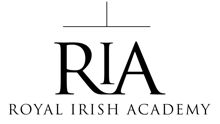2010 Press Releases
28.05.2010
The Royal Irish Academy (RIA) admitted three of UCC’s top academics as members today (Friday, May 28th 2010) in recognition of their academic achievement. This is the Academy’s 225th admission of new Members since it was founded in 1785.
Among those members elected for admission from UCC were Professors Paul Ross,
internationally recognised food scientist, Eoin O’Reilly, respected
physicist and Professor Caroline Fennell of the College of Business and Law. They were among only 24 academics on the island of Ireland to achieve this highest
academic distinction.
Professor Nicholas Canny, President of the RIA, said that this group "is
as accomplished and as academically diverse as any cohort elected since our
founding members signed the roll in 1785".
He also said that the promotion of research within universities must be related
to, and integrated with,
their teaching mission. Professor Canny went on to note that if Government funding
to support research is predicated to occur only where this funding can "be seen
to promote innovation, enterprise and immediate job creation, it would be
better [to enforce such a model] in stand-alone research institutes rather than
through cross-subsidisation from the teaching mission of higher-research
institutions."
Paul Ross has earned an
international reputation as scientist in the areas of food microbiology,
functional foods and genomics. In a 25 year research career he has published
over 250 peer-reviewed papers. Ross is head of Food Research at Teagasc and has
lead the development of the biotechnology programme at Moorepark and the
Alimentary Pharmabiotic Centre (APC) at UCC.
Eoin O’Reilly is a research
professor in Physics at the Tyndall National Institute, UCC. He is widely
recognised for his pioneering ideas and analysis of semiconductor laser and
optical devices. His ideas have had significant impact in optical communication
and wider photonic applications. O’Reilly has directed a world-leading group
whose interests span from fundamental semiconductor physics through to the
engineering of semiconductor lasers.
Caroline Fennell is a professor of law at the College of Business and Law at UCC
and a qualified barrister. She is the Chairperson of the Irish Research
Council for Arts, Humanities and Social Science (IRCHSS) and is a consultant
for the Law of Evidence for the Law Society of Ireland. Professor Fennell has
published widely in the area of criminal justice and the law of evidence.
Previously, she has held the positions of both Dean and Head of the Law Faculty
at UCC. Her publications include Law of Evidence in Ireland, 3rd ed (Bloomsbury Professional 2009); Labour Law in Ireland with I. Lynch (Gill and
Macmillan, 1993); Crime and Crisis in Ireland; Justice by Illusion (Cork
University Press, 1993).
In addition, Professor Roger Whatmore, CEO, Tyndall National Institute, UCC was recently conferred as a Fellow of the Irish Academy of Engineering for his contribution to Science and Engineering in Ireland.
About the Royal Irish Academy
The Academy now has 441 Members across the disciplines of the sciences,
humanities and social sciences and in its entire history only 2,833 people have
been Members. Among the membership of the Academy are many of Ireland’s leading
scholars, including: Professor Seamus Heaney, Nobel Laureate; Mary
McAleese, President of Ireland; Luke O’Neill, Boyle Medal Winner and James
McGuire, editor of the Dictionary of Irish Biography. Other well-known members
of the Academy have included Ernest Walton, Nobel prize-winning physicist; Eoin
MacNeill, politician and historian, James Gandon Architect and Francis
Beaufort, the originator of the Beaufort wind scale.
Competition for election to membership is keen as it is the premiere academic
honour in Ireland and a public recognition of the highest academic achievement.
Those elected are entitled to use the designation ‘MRIA’ after their name.

